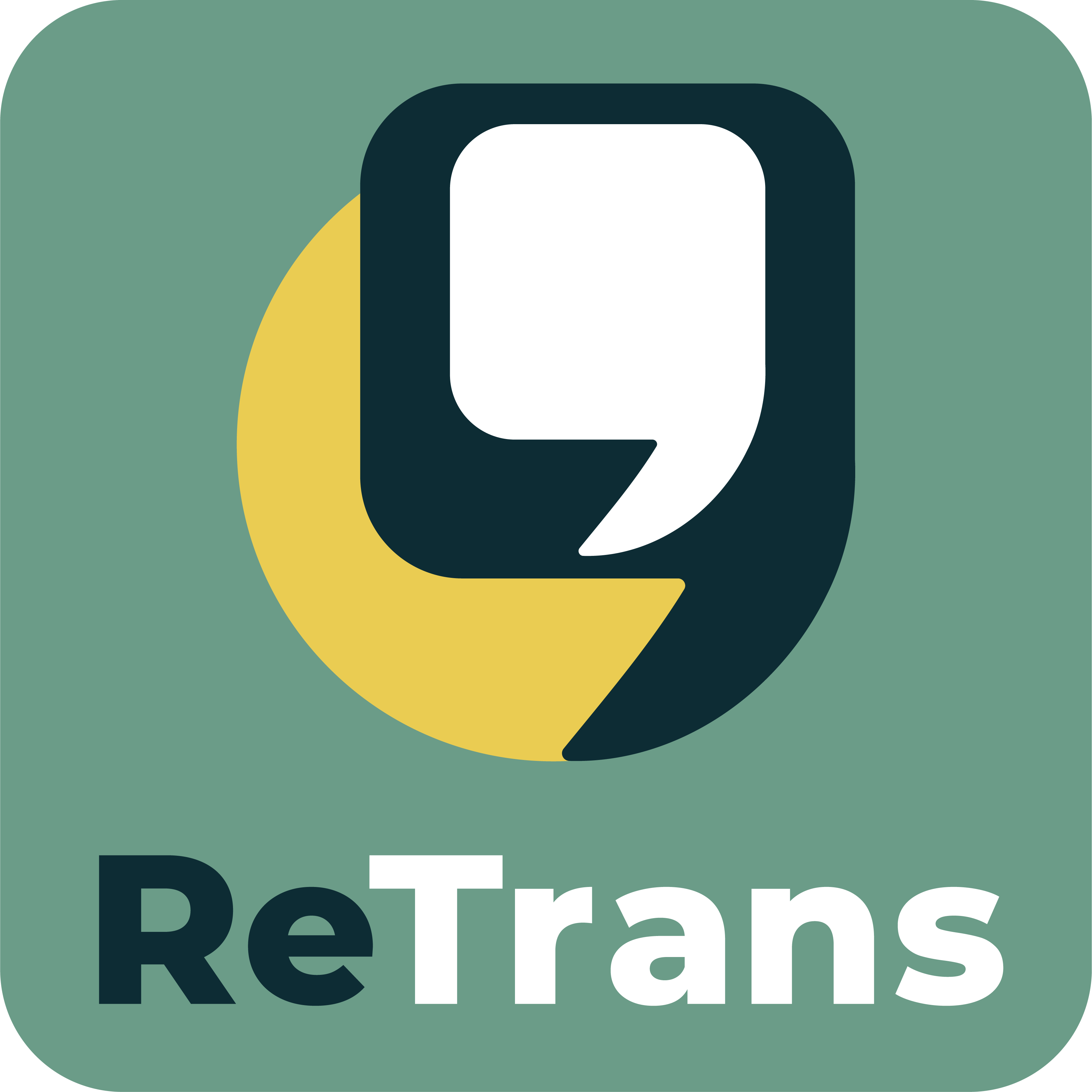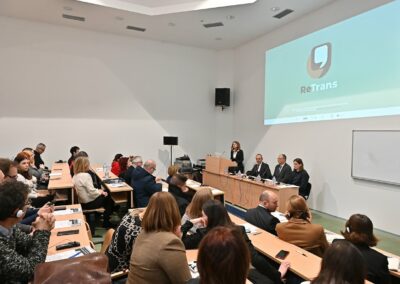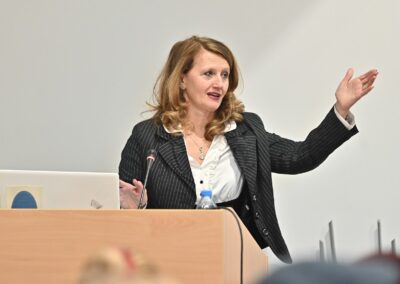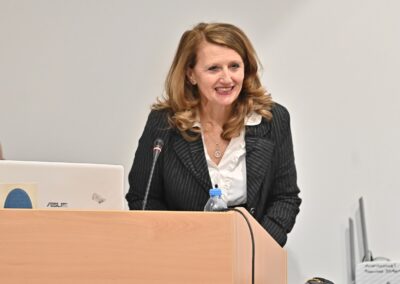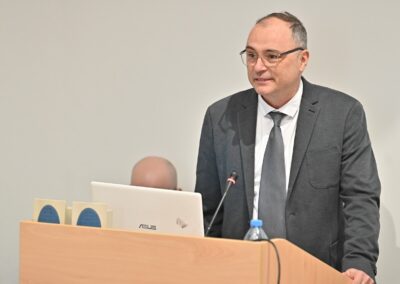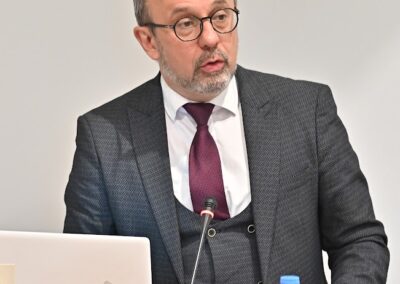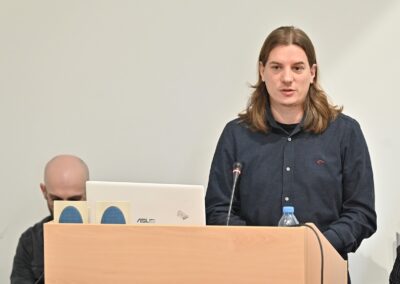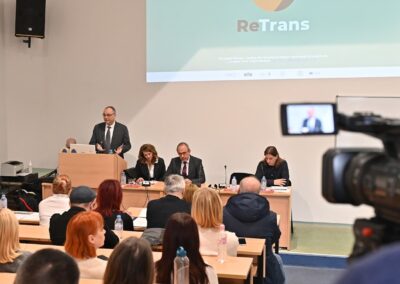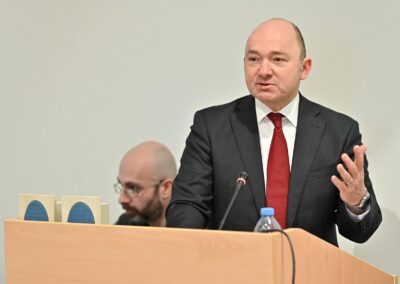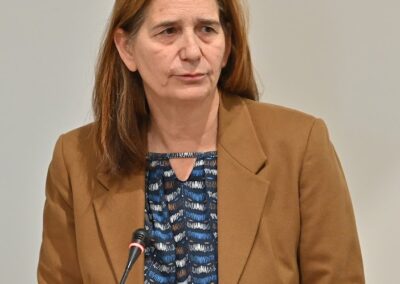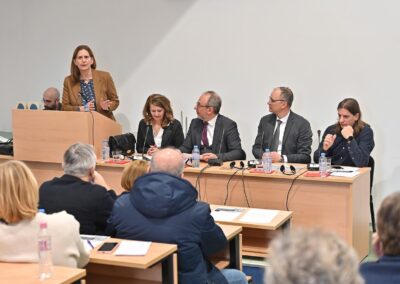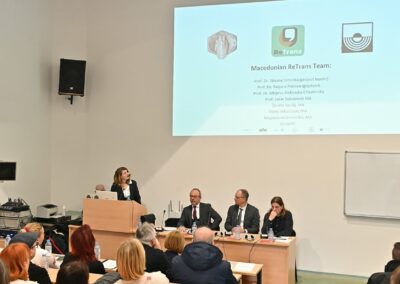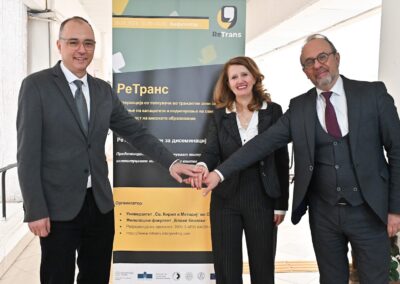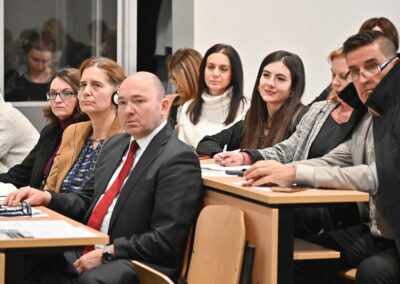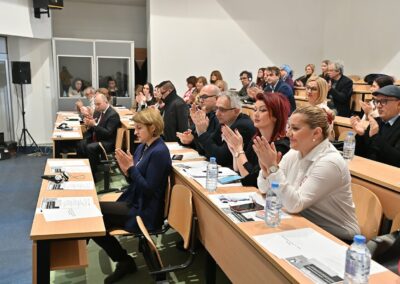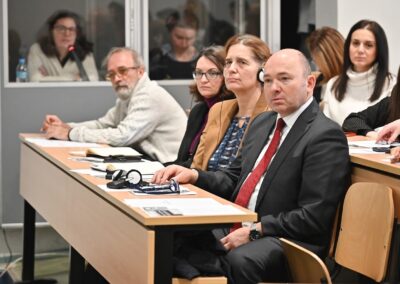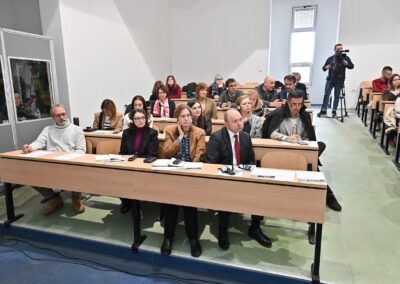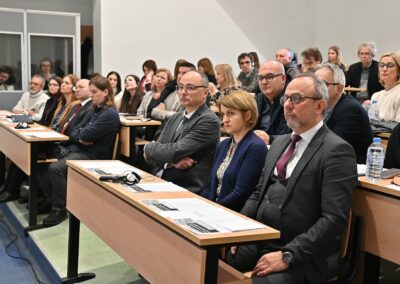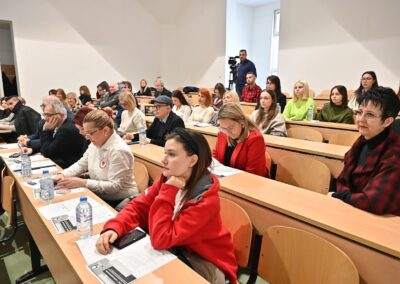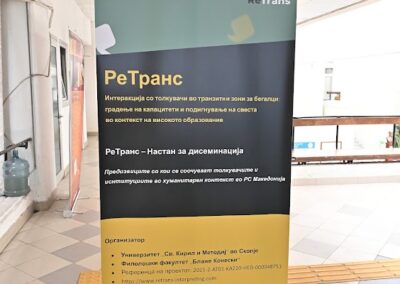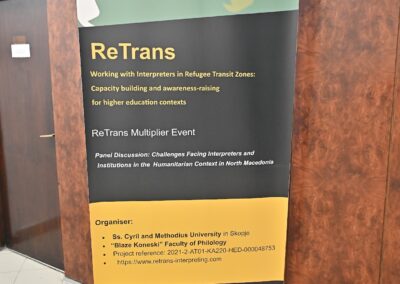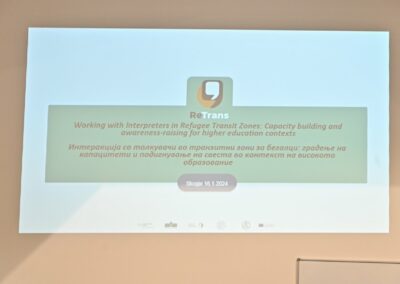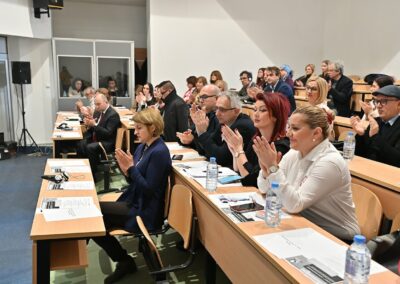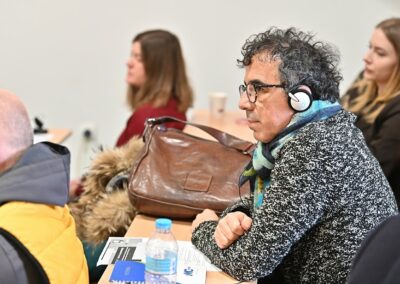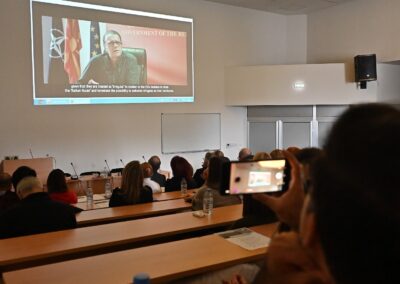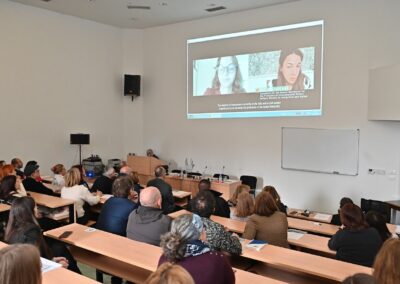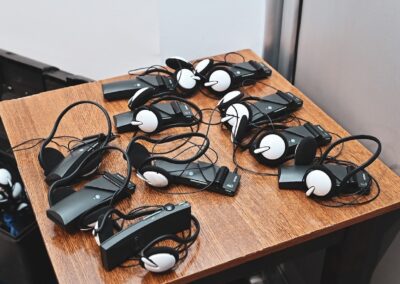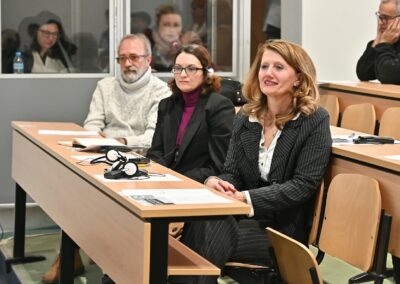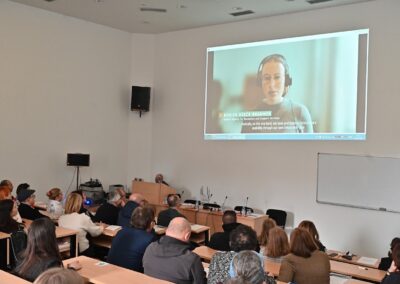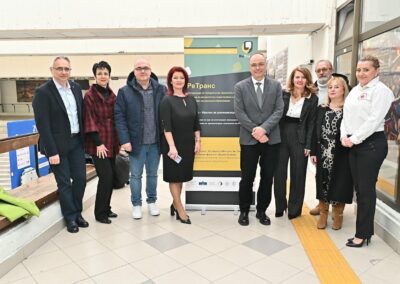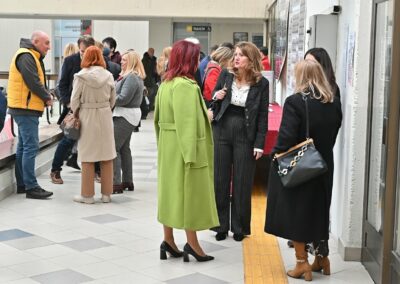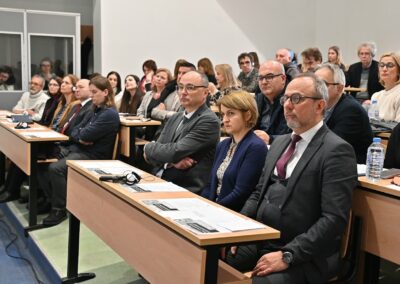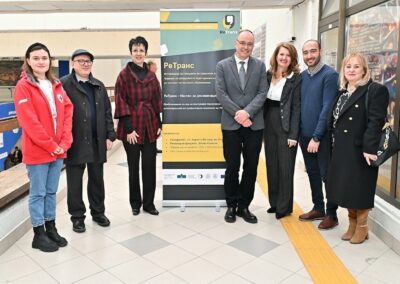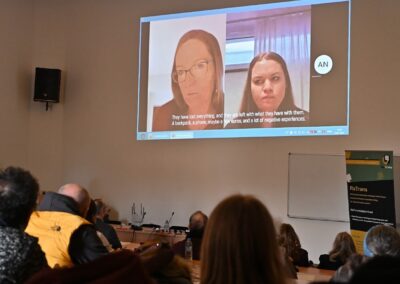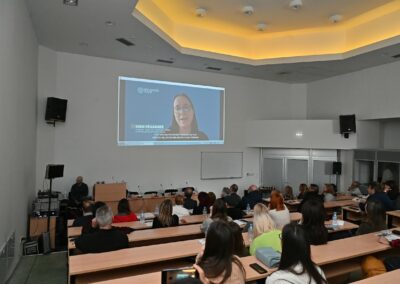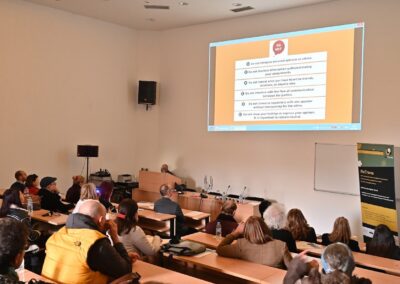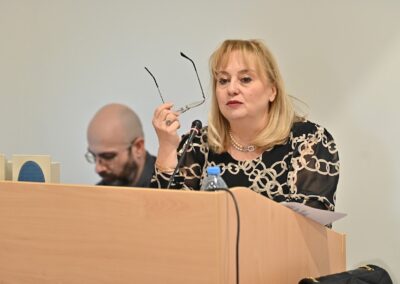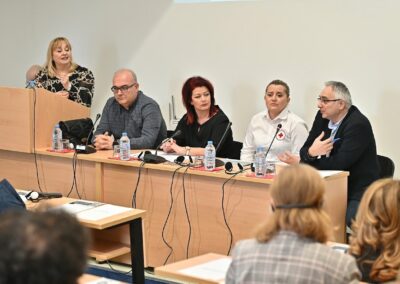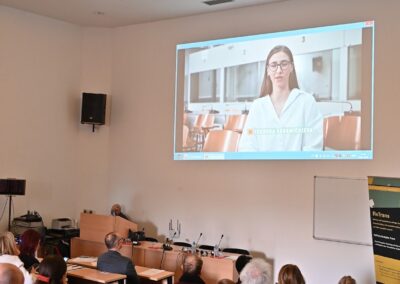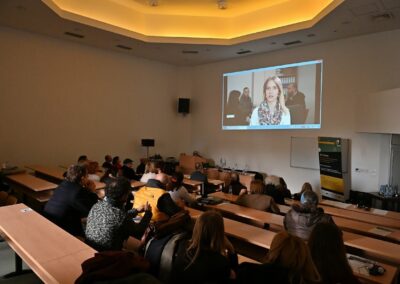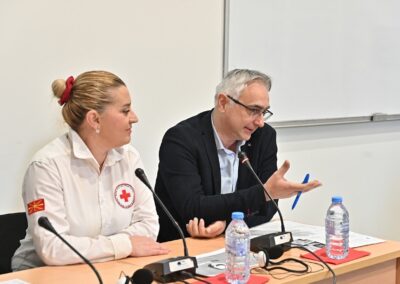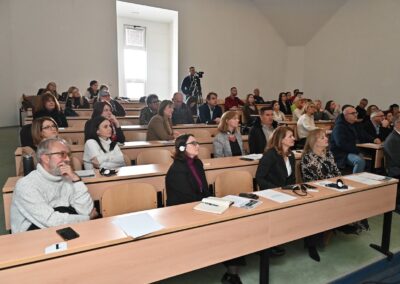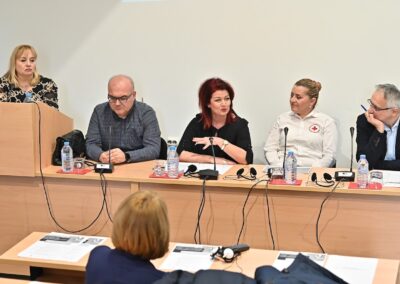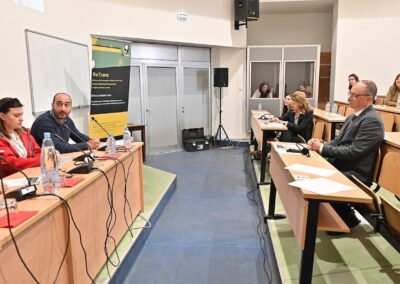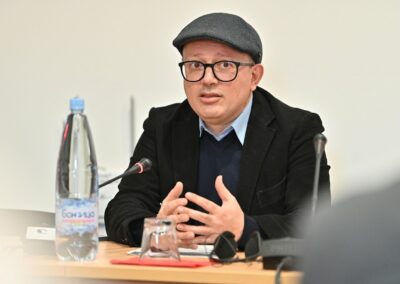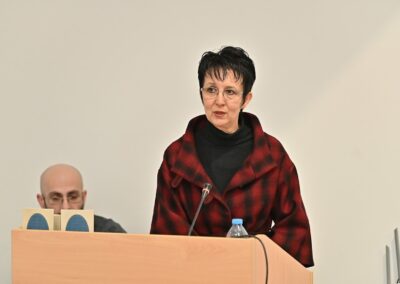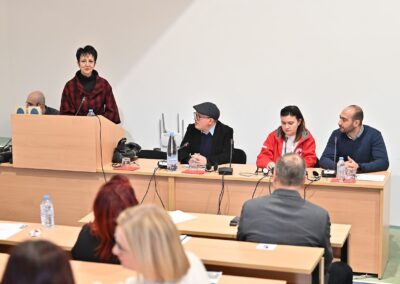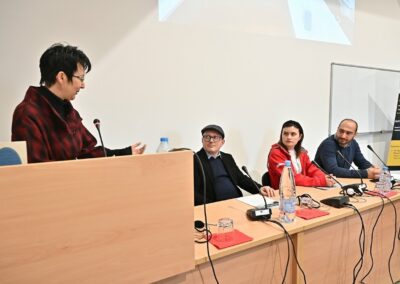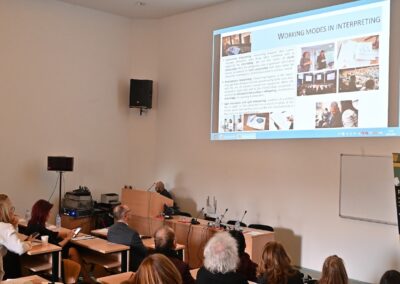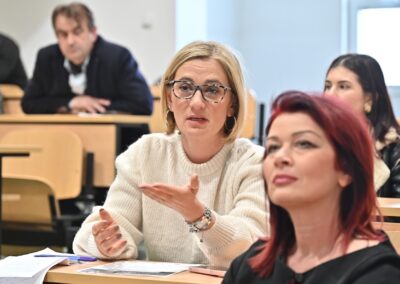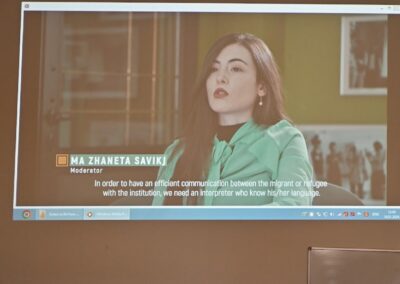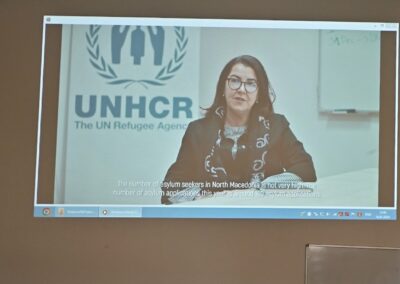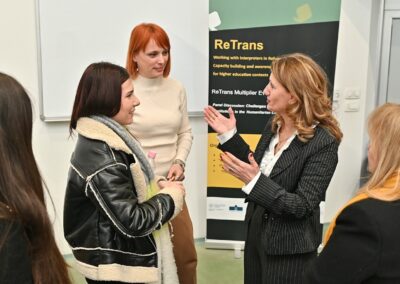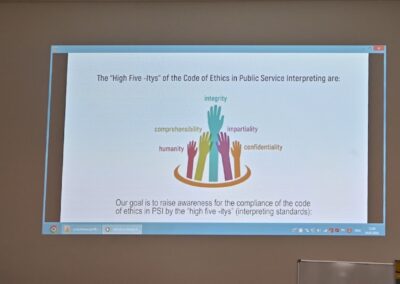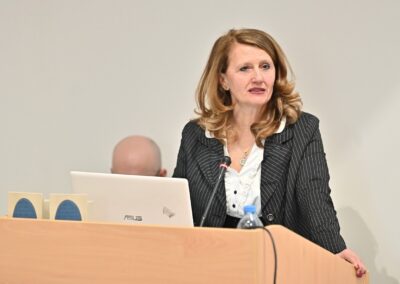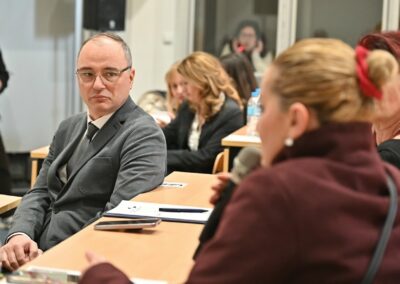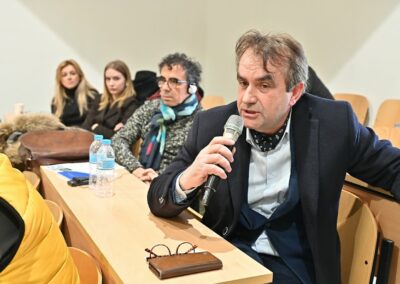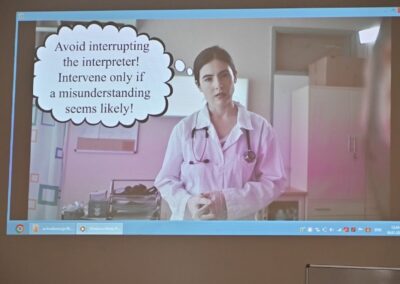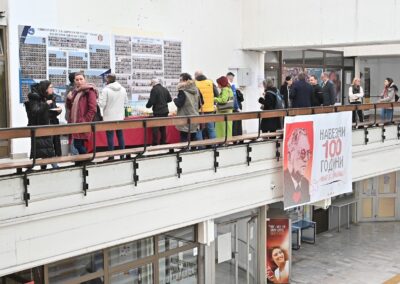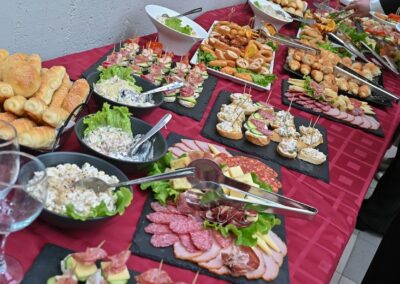Ss. Cyril and Methodius University in Skopje, “Blaze Koneski” Faculty of Philology, North Macedonia
The ReTrans Multiplier Event commenced on the 16th of January 2024 at the “Blaze Koneski” Faculty of Philology in Skopje, and it lasted from 10.00 to 14.00 (including pre-event and post-event reception: from 9.30 to 15.00).
The concept of the Macedonian ReTrans Multiplier Event agenda was developed on the basis that this event should serve, on the one hand, as an academic forum where the innovative results of the project (survey, vodcasts, educasts) can be disseminated to a broad audience, and, on the other hand, to lay the groundwork for discussions and exchange of experiences between academics (professors and students), interpreters (professional and lay) and stakeholders involved in humanitarian contexts in North Macedonia.
On this occasion the ReTrans team from the Ss. Cyril and Methodius University in Skopje took the opportunity to present the main goals of the project, in general, and a targeted selection of the outstanding project results of the Macedonian team (survey report, six vodcasts, three educasts) followed by two-panel discussions with the distinguished panellists and participants.
The event was organized to address the challenges faced by interpreters and institutions in North Macedonia in a humanitarian context (Panel Discussion: Challenges Facing Interpreters and Institutions in the Humanitarian Context in North Macedonia).
Simultaneous interpretation from Macedonian into English and vice versa, as well as technical equipment for active participation in the discussions, was available to all guests and speakers during the entire event.
The opening ceremony featured esteemed speakers, including Prof. Dr. Silvana Simoska, the project coordinator, Prof. Dr. Vladimir Martinovski, Dean of the Faculty of Philology, Prof. Dr. Aleksandar Skeparovski, Vice-Rector for International Cooperation of the Ss. Cyril and Methodius University in Skopje, Prof. Besfort Idrizi MA, Dean of the Faculty of Dramatic Arts, H.E. Martin Pammer, Ambassador of Austria to North Macedonia, and H.E. Sophia Philippidou, Ambassador of Greece to North Macedonia. They all emphasised the critical relevance of the project within the context of humanitarian challenges.
Prof. Dr. Silvana Simoska then presented the project’s objectives and outcomes, setting the stage for the subsequent presentations and panel discussions on topics including:
First panel discussion:
- What needs do refugees have when they enter North Macedonia?
- What role does interpreting play in this context and is there a legal framework?
- How do the institutions cooperate with interpreters, regional and interregional?
Second panel discussion:
- What challenges do interpreters and stakeholders face in North Macedonia?
- What progress has been made and what still needs to be done?
- How can the situation be improved for both parties: interpreters and stakeholders?
The first segment of the event led to an enlightening panel discussion, shedding light on the pressing challenges and crucial opportunities within the field of interpretation and humanitarian aid in North Macedonia. Moderated by Prof. Dr. Tatjana Panova-Ignjatovikj, the panellists representing the governmental, intergovernmental and nongovernmental sector, Dejan Ivkovski, Vladimir Bislimovski, Snezhana Trajanovska, and Sandra Tomovska, engaged in a comprehensive dialogue, reflecting the diverse perspectives and expertise of their respective roles. The panel discussion culminated in a unified acknowledgement of the pivotal role of certified interpreters in addressing the intricate and diverse needs of individuals and communities navigating complex legal, humanitarian, and social systems. The shared consensus among the panellists underscored the imperative for ongoing collaboration and concerted efforts to elevate the standards and availability of certified interpreters in North Macedonia.
Following an engaging coffee break that provided an opportunity for attendees to network and engage in further discussions, the second part of the ReTrans Multiplier Event commenced with the second presentation of vodcasts/educasts and a compelling panel discussion.
Prof. Dr. Mirjana Aleksoska-Chkatroska moderated the second panel, guiding the thoughtful exchange among distinguished panellists, including Prof. Dr. Milan Damjanoski, a professor and practising interpreter, Hamid Motamed Hosseini, and Maryam Omer, both community interpreters. Prof. Dr. Milan Damjanoski acknowledged the value of sharing everyday experiences with students and advocated for a more structured approach to psychological training. This prompted a subsequent reaction from the audience regarding the neutrality and pure professionalism expected from interpreters, to which Hamid Motamed Hosseini and Maryam Omer candidly responded by sharing personal experiences and real-life challenges where the boundaries of interpreter neutrality were tested in emotionally charged situations.
The event culminated with a closing ceremony, where Prof. Dr. Silvana Simoska summarized the key insights and impactful discussions from the event, expressing gratitude to all participants and emphasizing future challenges and potential follow-up projects.
The post-event reception provided an invaluable opportunity for the participants to engage in further networking and deepening of discussions, reinforcing the collaborative spirit and commitment to advancing the vital work of interpreters within humanitarian contexts.
According to the evaluation, most of the participants find the comprehensive results presented through the survey, vodcasts and educasts within ReTrans useful and noteworthy. The vodcasts and educasts offered comprehensive results and a multi-dimensional understanding. The blend of qualitative and quantitative outputs demonstrated, according to them, a well-rounded approach to research and knowledge dissemination. All these products have increased the awareness of the participants and provided practical insights that will be beneficial in both academic and practical contexts.
Download Invitation & Agenda
Invitation (English)
Invitation (Macedonian)
Agenda (English)
Agenda (Macedonian)
Authors: Silvana Simoska, Tatjana Panova-Ignjatovikj, Mirjana Aleksoska-Chkatroska, Lazar Sekulovski, Zhaneta Savikj
Photo Credits: Meteor Digital Skopje, Igor Dimovski
